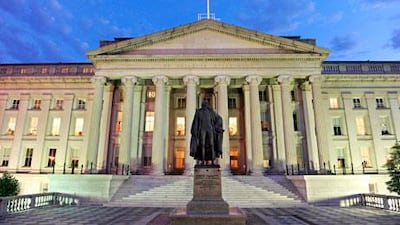As we emerge from the global recession, US and European companies are once again looking eastward and showing a renewed interest in the Gulf region.
When seeking to invest in the Gulf, international companies bring with them a host of opportunities, international exposure and foreign know-how. Increasingly, they also come with a wide range of seemingly cumbersome legal and regulatory requirements that they and their local partners need to understand and adhere to.
To mitigate these potential risks and ensure compliance, US and European firms are increasingly relying on professional investigators to conduct pre-transaction due diligence and generate critical and deal-related intelligence on potential business partners. Simply put, due diligence involves gathering information and verifying facts through public records research and, often, through inquiries with informed confidential sources.
Here I offer illustrations, derived from years of experience conducting investigations in a host of Gulf countries and across various sectors, of the anatomy of a due diligence investigation in the region and some of what local companies should consider when conducting self-due diligence.
Typically, investigators begin by looking for evidence of involvement in any impropriety. While there is no single readily available checklist for all the issues that we watch out for, these include conviction for fraud or money laundering, bankruptcies, involvement in terrorist financing or corrupt practices, and confirmation of other criminal or unethical behaviour.
The next step would then be to widen the net of our inquiries and look for allegations of misconduct. This is particularly important in the context of the Gulf, where businesses and individuals have faced scrutiny for alleged ties to militant Islamic groups in the post-9/11 world.
Upon identifying such accusations, a qualified investigator with experience in the Gulf region would seek to place them in context, scrutinise the reported allegations and understand the extent to which they represent a risk to the client.
Unless specifically asked otherwise, a qualified due diligence investigator does not draw conclusions simply because clients have a different risk appetite.
The extra-territoriality of international trade sanctions is also a key factor in conducting due diligence in the Gulf. While Gulf companies may be operating within the law in their own jurisdictions, they may find themselves - inadvertently or purposefully - behaving in ways that run foul of US or European economic boycott laws. These laws restrict trade, in varying degrees, with Iran, Syria and Sudan, with which Gulf countries have long-standing (although often complex) business and political connections.
In Iran, the latest round of US sanctions has targeted the energy sector and prohibits anyone from providing goods or services to the petroleum industry. These sanctions place the onus on businesses worldwide to cut off their relations with Iran. It is best to find out, sooner rather than later, if your company is incurring any liabilities under sanctions laws so that it can lower its risk profile to outsiders.
Finally, the Gulf represents particular challenges for international companies given the large overlap between business and politics and the risk that a foreign company may find itself in a relationship with politically influential partners or company officers. While political connections may benefit a nascent commercial relationship, they can also lead to significant liabilities under anti-corruption legislation such as the US Foreign Corrupt Practices Act and the UK Anti-Bribery Act.
These laws prohibit a variety of activities, such as the bribing of foreign government officials, and are increasingly being enforced in relation to US and international companies.
As a result, companies seeking to operate in the Gulf need to vet third parties with which they propose to do business and check for any possible liabilities under anti-corruption laws.
As investigators, one of our chief roles is to examine all links between a due diligence target and any serving government officials, members of political parties, ruling family members (on the matrilineal and patrilineal sides) and, crucial in the Gulf, executives of state-owned or state-controlled enterprises, including charities.
We also seek to find out whether a target is qualified to conduct its stated business and look for evidence of any unusual financial arrangements in its operations.
These are just some of the issues that businesses look out for when considering opportunities in the Gulf. While not necessarily a deal-breaker, these matters require closer inspection as international companies face increasing regulatory scrutiny.
Gulf companies should learn about the due diligence process and consider hiring a professional to conduct their own self-due diligence to assess how attractive they appear to outsiders and what potential risks might present themselves in a review.
This is an exercise well worth undertaking, and one that will provide Gulf companies with the opportunity to set the record straight on any incorrect information or intelligence that may cloud their reputation.
Rana Feghali is the head of Middle East practice at Nardello & Company

